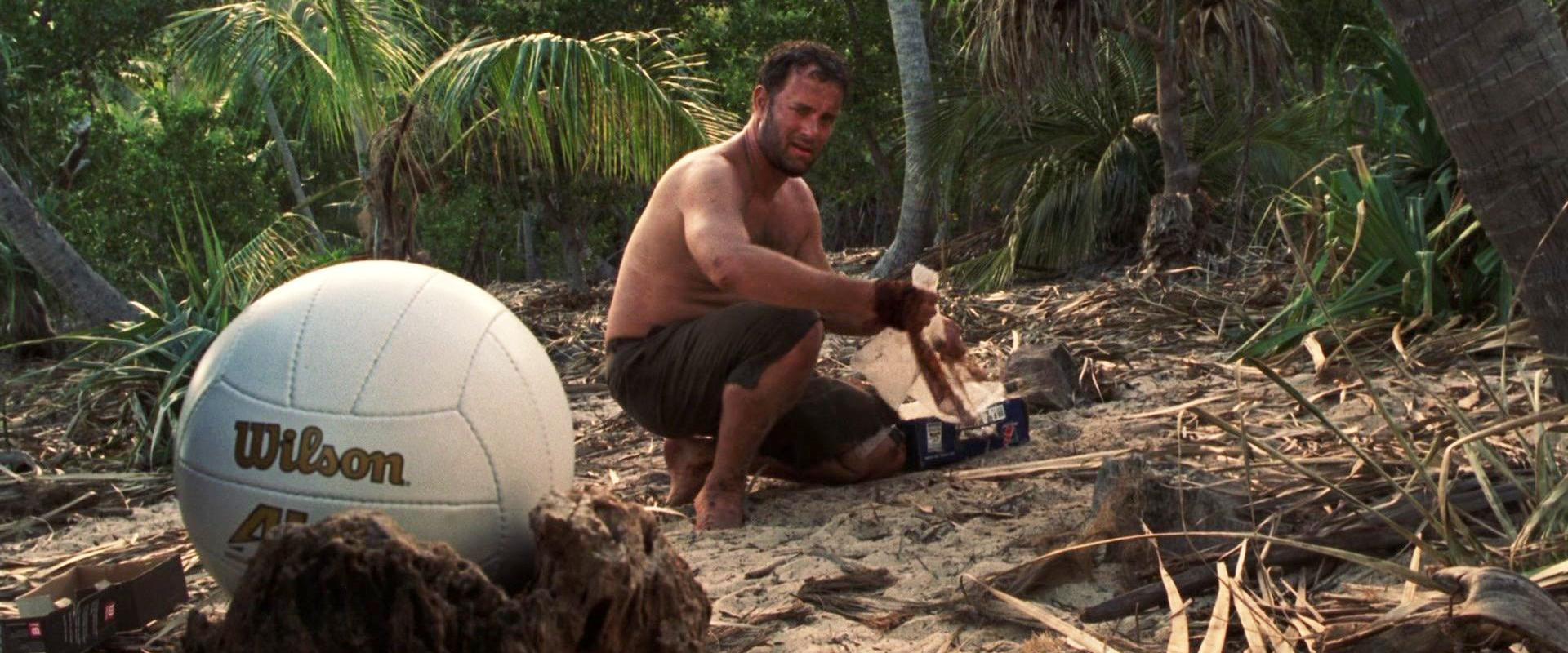Cast Away
 for intense action sequences and some disturbing images.
for intense action sequences and some disturbing images.
Reviewed by: Brett Willis
CONTRIBUTOR
| Moral Rating: | Average |
| Moviemaking Quality: |
|
| Primary Audience: | Teen to Adult |
| Genre: | Drama |
| Length: | 2 hr. 23 min. |
| Year of Release: | 2000 |
| USA Release: |

| Featuring |
Tom Hanks Helen Hunt Valerie Wildman Geoffrey Blake Jennifer Lewis |
| Director |
Robert Zemeckis |
| Producer | Joan Bradshaw, Jack Rapke, Robert Zemeckis, Steve Starkey, Tom Hanks |
| Distributor |
I believe this is one of the best films of its type ever made; of course, that type is a pretty rare one. When someone is “cast away” and isolated from civilization for an extended period, there are the dual problems of “What happens if I don’t get back?” and “What happens if I do?” “Cast Away” provides good food for thought in a compelling story.

Chuck Noland (Tom Hanks) is a high-energy FedEx troubleshooter who travels the world at a moment’s notice, helping employees of foreign FedEx centers to understand that their business lives and dies by the clock. Chuck makes time for girlfriend Kelly Frears (Helen Hunt) out of the leftovers. But when a FedEx plane crashes in the South Pacific and he’s the only survivor, Chuck’s frantic lifestyle is replaced by one that’s very slow-paced and yet is frantic in a different way. Cast on an uninhabited island, Chuck must use all his skills and wits to satisfy his basic human needs.
There are the deaths of the rest of the plane’s inhabitants (not directly shown); several scenes of blood; and sequences which are “gross” but which accurately depict what a castaway must do to survive (let’s just say it involves major changes in diet and lifestyle). Chuck wears a loincloth, but it’s no briefer than Hanks’ underwear in “Turner and Hooch”. Profanity is present, but very sparse. For maximum effect, the film should be seen with as little prior knowledge of the story as possible. But as a courtesy to parents, here are two pieces of information that give away plot elements. One: there’s a time that Chuck considers suicide, but decides against it (we don’t see this directly, but learn about it later). Two: Chuck survives, gets back to civilization and finds that Kelly is married and a mother. Chuck and Kelly are still in love, and it takes them a little while and a few kisses to make up their minds, but eventually they do the right thing.
The production values are very high and the mood-setting is excellent. During his time alone, Chuck talks occasionally to an inanimate friend; most of his experiences are shown (or implied) rather than described. There’s no voiceover and very little music. The drama is a masterpiece of understatement. For realism’s sake, filming was suspended for a year while Hanks lost about 50 pounds; then the shoot resumed, starting at the latter part of the castaway period.
Although there are multiple crises in this story (there’s a minor subplot about the wife of one of Chuck’s coworkers dying of cancer), there are no expressions of faith by Chuck or anyone else. The best the characters have to offer each other is their own help and sympathy. That’s good, but it’s not enough. Christian believers have the assurance that the trials and tests in our lives will never be greater than we can bear (I Cor 10:13), and that God Himself is our refuge and strength (Ps 46:1).



